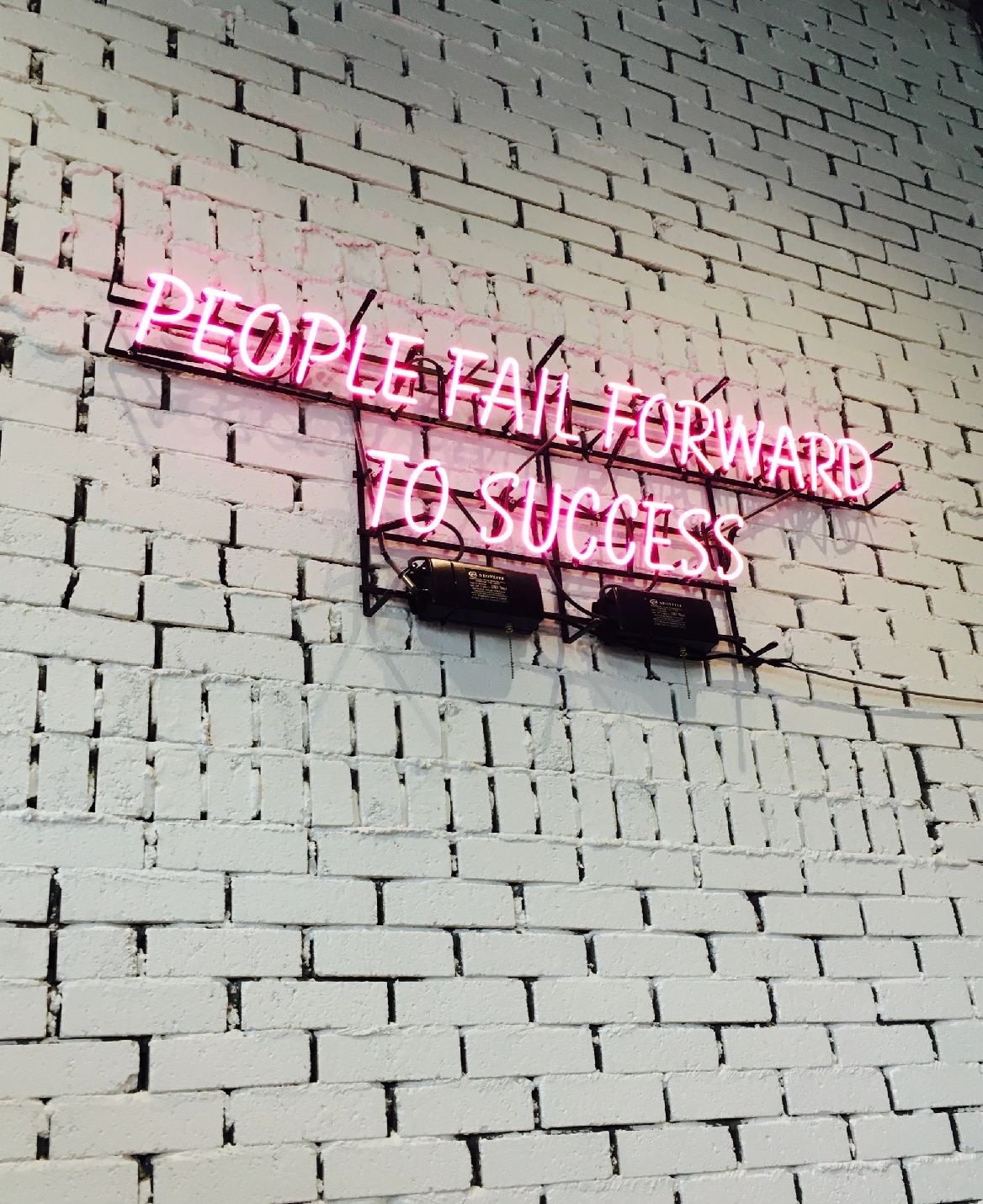If you’re looking for a new set of rules to live by for a happier life this year, then you’ve come to the right place!
Here are some rules that you can use as inspiration to steer your life in the best direction possible. They might not all feel right for you, but I’m sure you’ll find a couple that you can focus on.
There are examples to show how you can use these rules to live a happier life. Something I noticed when researching this article is that a lot of the “best rules to live by” articles focus on only the rules, not how you can turn them into practice.
So have a look at the table of contents below and jump straight to a rule that you find appealing!
Contents
- Rule 1: Treat every day like a birthday gift
- Rule 2: Make a living instead of making a life
- Rule 3: Let joy rather than fear lead you
- Rule 4: Live in the moment
- Rule 5: Keep an open mind
- Rule 6: Let your emotions guide but not define you
- Rule 7: The past doesn’t define your future happiness
- Rule 8: See the good in people
- Rule 9: Stop being a control freak
- Rule 10: Ditch the word “should”
- Rule 11: Give and expect nothing in return
- Rule 12: Focus on what you want
- Rule 13: Maintain a Positive Mental Attitude
- Rule 14: Redefine what failure is
- Rule 15: Knowledge isn’t always king
- Rule 16: Get in touch with your eternal essence
- Rule 17: Feel comfortable about your physical appearance
- Rule 18: Don’t over-analyze everything
- Rule 19: Try to deal with more uncertainty
- Rule 20: Open up to people and get their support
Rule 1: Treat every day like a birthday gift

Do you live for the weekend and only the weekend? This can cause us to miss out on a lot of stuff in life because we basically think good things can only happen from Friday to Sunday. When we have this sort of mentality, we’re limiting ourselves because we assume life will be ordinary until the weekend.
A better approach is to wake up and appreciate the day you’ve received. Think of it as a daily birthday gift and a chance to experience the best life has to offer. This gives you a chance to create, explore, dream, and discover. You can truly experience yourself by living life to the fullest—even if it’s Monday.
I’ll be the first to admit that some days are just terrible, and it seems like the whole world is against you. This happens to everybody sometimes. The important thing to do is to not let it get you down. Treat the next day as a gift nonetheless.
Every day is a new day to be as happy as possible. If you live your life appreciating every single day, you’ll live a happier life.
Rule 2: Make a living instead of making a life

What’s the big deal with money in terms of your happiness? On one hand, there’s nothing wrong with earning money. We need it to buy stuff we need and pay bills. The problem is that when we pass away we can’t bring money or possessions with us.
We often make the big mistake of thinking that the true meaning of life is doing things. It’s important to remember your “soul” doesn’t care what activities you’re doing. It’s instead concerned about what you’re being. So making a living is part of life. However, it can be a problem if you’re unhappy in the process.
This mostly is about doing what you want to do and what you enjoy doing. You should arguably also do what you’re good at. In fact, if you’re doing what you like doing you’ll likely be more successful as well. That’s because you’ll be motivated by more than money. It’s cliché, but you’d likely be willing to work for free.
Work can bring fulfillment, satisfaction, and success to our lives. However, the problem is when it takes over our lives. This causes us to exist vs. living. It can also result in our lives lacking joy and happiness.
Rule 3: Let joy rather than fear lead you

If you want to live a happy life, then avoid making decisions based on your fears. It’s better to make them based on your interests, passions, and your gut feeling. You’re a unique human with talents and idiosyncrasies that nobody else in human history has or will have.
For example, make sure you’re not making everyday decisions based on the Fear Of Missing Out (FOMO). This is about a person fearing that they’ll miss out on a fun/interesting event while others don’t. This might seem to go against conventional wisdom, but there’s a caveat. Missing out on something can be a good thing.
This term is known as the Joy of Missing Out (JOMO). Let’s say you have a chance to try out a new restaurant or blockbuster movie that has received great reviews. The problem is you’re sleepy and just want to get rid of your sleep deprivation. Most people 40+ years old or so would prefer JOMO vs. FOMO.
The key is that making decisions based on joy vs fear is always the better choice. It can be tough to switch from FOMO to JOMO but can be a game-changer in your life. It’s critical to know what causes you the most happiness in life because that allows you to steer your life in the best direction possible.
Rule 4: Live in the moment

One reason people tend to be happy is they’re living in the moment. They focus on what’s happening right now and who they’re with. Doing that can be the key to happiness. You don’t feel sad about what happened in the past while you also don’t fret about the future.
It’s better to take whatever life has for you and do what you’re required to do. This is a better option than planning things too early or over-analyzing everything. That’s because the only thing that’s really guaranteed in life is change. So stop worrying about things you can’t change and focus on the here and now.
When you do that you avoid a lot of emotions that prevent you from living your life. You can instead focus on your life based on the values that mean the most to you. When you live in the past or the future, you can really miss out on life as it’s happening right in front of you.
Here are some ways to live in the present:
- Do something that doesn’t require thinking: cooking, reading, puzzling etc.
- Stop with what you’re doing and go for a walk outside
- Appreciate today’s moments fully
- Don’t focus on past failures or future deadlines
- Forgive people for hurting you in the past
- Remove things that are associated with the past
Rule 5: Keep an open mind

We often hear this advice but what does it have to do with being happy? When you have a narrow/closed mind, it can have a negative impact on you. A big reason for this is based on human nature since we don’t like it when people disapprove of us.
Feeling wrong makes us feel unaccepted, and that’s not fun. When you have a narrow mind, it’s tough to deal with people who have different ideas/beliefs than you. That’s because it can seem like a threat and cause you to feel like you’re wrong. If you have a closed mind then everyone will seem to be wrong.
Meanwhile, if you keep an open mind, you won’t feel threatened when you hear different ideas or beliefs of other people. You’ll actually accept the different perspectives and want to comprehend them better. This will make you more flexible in your thinking. You’ll also feel more positive about any changes.
Here are some effective ways to have an open mind:
- Get out of your comfort zone
- Develop new areas in your life
- Ask questions and keep learning
- Be social and make new friends
- Don’t close yourself off to people
- Try not to be reactionary when you hear new ideas
Rule 6: Let your emotions guide but not define you

These are two different things. It’s natural to experience negative feelings like jealousy, pain, and anger. When this happens, you have a couple of options. You can bury them in your subconsciousness or get totally consumed by them. It’s advisable to avoid both of them.
A better option is to watch out for any strong emotions you experience. Then try to figure out what the emotion is attempting to teach you. For example, do you make big changes to your situation in life or become a more peaceful person? Keep in mind, this is different from the emotion defining you.
A big part of the process is learning to “listen” to your emotions. You can do that through methods like meditation. This helps you to stay calm and grounded. In fact, it can even result in a healthier life. Don’t let emotions take over your life. It can affect your stomach, heart, thoughts, etc.
Research shows that to go through life successfully, you must be able to name and describe the emotions you experience. This is basically why you need to develop your emotional self-awareness. When you correctly understand emotions, you can respond to your situations in ways that maintain harmony in the world.
Rule 7: The past doesn’t define your future happiness

It doesn’t help to focus on the past if you want to be successful or happy. The past is the past. We can certainly learn from it, but it doesn’t define what we’re capable of. This can involve various areas of our lives including work, sports, relationships, etc.
In fact, focusing too much on the past can prevent you from future success. That’s because we can get caught in a vicious cycle of negative thinking. Yes, we’ve all failed in the past. In many cases, we even failed several times or catastrophically. That doesn’t mean it will happen in the future though!
This can keep you from being the best you can be. You can learn from your mistakes and that’s something you should do so you can avoid repeating them. In fact, mistakes can be some of our best teachers when trying to achieve success. That’s just the start.
The key is to avoid focusing on everything you did wrong during the past. Make sure to review what mistakes you made then focus on how you can avoid making those same mistakes again. If you do that you’ll be more likely to achieve success.
Rule 8: See the good in people

Other people might frustrate, anger, or hurt us. This is simply a part of life. This even happens when people mean well. The good news is that you can look past these external factors and focus on the humanity/mortality that you share with everyone.
How can you do that? Remember that we’re all “souls” in physical bodies. We’re also trying to do the best we can in life even when we experience hard-as-nails times. This doesn’t mean that it’s easy to accept/forgive people and especially when they’ve wronged us. However, it’s worth a try.
So it’s all about seeing the “light” in people. This involves seeing the talents/qualities people have even though they might not be apparent. Doing that can help to bring out the best in people. This helps them see that they’re unique and valuable, which might help them be less hurtful, annoying, or mean to you.
Seeing the good in people isn’t just about helping others. It can also help you be truly happy. Spreading happiness is paradoxically a great way to find happiness yourself!
Rule 9: Stop being a control freak

Feeling like you’re in the driver’s seat of life can produce a feeling of security. Meanwhile, this can also cause you to lose your freedom. Yes, when you try to control things, you might actually find yourself imprisoned in your own circle of safety.
The problem is these feelings can ironically cause you to lose control of yourself and probably others. You end up becoming dependent on the feeling that you’re in control. That can drive you nuts since things don’t always pan out how you planned. Another factor is that some people don’t like to be controlled.
So when they leave us this makes the situation worse. You’ve now lost control of yourself, others, and the entire. As a result, this can prevent you from being truly happy. The best solution is to stop being a control freak. You can’t control everything, so it’s not worth trying.
You can take some effective steps to stop being a control freak:
- Do the opposite of what your emotions tell you
- Step out of your safe comfort zone
- Practice self-acceptance
- Think about what emotion is causing the problem
- Deal with the distorted feeling you have
- Determine when you’re trying to control a situation, then act accordingly
Rule 10: Ditch the word “should”

One of the reasons people are unhappy is they feel like they haven’t achieved some sort of standard that society sets. This could involve success, expectations, a career, a relationship, etc. We might also feel that other people aren’t meeting the expectations we have of them.
A better approach is to forget about what we should be doing in life and how other people should be. This can result in us feeling freer and happier. For example, we can live in the moment instead of always comparing what we have with what is “expected” of us. We’ll also be more likely to accept people as they are.
It can be tough to give up others’ expectations of us. There are various reasons why we feel the need to meet these expectations, especially when they originate from a strict upbringing. We also think that we can only achieve success if we meet the perceived expectations we observe via movies, songs, social media, etc. if you don’t achieve them we feel like we’ve failed.
It’s critical to let go of the idea that we must meet others’ expectations of us. It’s pointless to let these external factors influence our own happiness!
Rule 11: Give and expect nothing in return

While the Latin phrase “quid pro quo” (tit for tat) sometimes applies in life, sometimes it’s not relevant. There’s something special about giving something to people we love and not expecting anything in return. This can result in true happiness. That’s because it can cause priceless positive feelings.
Some multi-billionaires have taken this concept to the extreme by promising to give away over 50% of their money to charities. But the concept of giving is not just limited to money. When we give to others – whether that’s money, a smile, or a hug – it paradoxically has a positive effect on our happiness as well.
Giving opens the chance of receiving but it shouldn’t be the reason we do it. One of the best gifts people can give is from their heart, which can result in true happiness.
Rule 12: Focus on what you want

This might seem like a case of stating the obvious so what’s the big deal? The problem is that many people actually focus on what they don’t want. Yes, it’s true! It’s about focusing on negative things like what’s wrong about something, what’s missing, what could be better etc.
Then it becomes a vicious cycle of negativity. The problem is this keeps us from getting what we truly want. It’s tough to find a solution for problems when you focus on what’s not working. This is again conventional wisdom, but we often fail to follow it.
A better approach is to focus on solutions all the time. If there’s a problem, then you’ll be happier if you can figure out how to solve it. This can help to prevent your ego from getting in the way. It’s a constant battle but one that’s definitely worth fighting.
This is also why practicing optimism is so crucial. Focusing on positive things rather than things that are not good is one of the easiest ways to shape your mind into a happy mind.
Rule 13: Maintain a Positive Mental Attitude

Maintaining a Positive Mental Attitude (PMA) is critical. You can use different methodologies like yoga, which put the power of a PMA front and center. It could be argued that most of our troubles originate from the mind. Shakespeare once wrote that there’s nothing good or bad but “thinking makes it so.”
Thinking positively is actually a choice. You can use it to your advantage instead of preventing you from achieving your goals. It’s important to keep working to have a PMA. While it’s impossible to think positive 100% of the time, it’s a good goal to have.
You can achieve this goal through various methods. One of the most effective ones is regular meditation. In fact, this is one of the easiest ways to control your mind. Another good option is yoga, which not only can benefit your mind but also your body.
You can also try to be more grateful. Before you fall asleep think about the things you’re grateful for. The universe doesn’t owe us anything. We often focus too much on what we don’t have instead of what we do have. If you have basics like food, clothes, and shelter that’s technically all you “need” in life. The rest can make your life comfortable, but you don’t really need the latest and greatest smartphone to stay alive and healthy.
Rule 14: Redefine what failure is

We usually think of failure as something we try that doesn’t pan out. This is basically about seeing the proverbial glass as half empty instead of half full. Try to see it as a victory since you tried. It’s a bigger failure when we didn’t even try something instead of not achieving success.
This doesn’t mean you shouldn’t try to “win” in life. However, sometimes we give 110%, and things still don’t work out. It could be related to a job, relationship, or game. You can apply this concept to just about every situation in your life. This doesn’t mean though that simply trying is good enough.
Besides trying you should always give it your best. If you only use 1% of your potential, then you shouldn’t be surprised if you fail. On the other hand, if you give it everything you have and things don’t work out, then your effort is definitely not a failure!
A related issue is the fear of failure. This can be a powerful mindset that can cause people to do absolutely nothing. This prevents the ability to move forward in different aspects of their life including work, school, home, etc. Meanwhile, when we take chances and risk failure, we can also take advantage of some fantastic opportunities.
Rule 15: Knowledge isn’t always king

We often have the wrong belief that being right about everything is the key to happiness. This kind of thinking is also more likely in the digital age since we’re bombarded with info. However, one problem is it’s impossible to learn all knowledge.
It’s important to let go of the need to be right all the time.
Let’s look at an example: Imagine a world where you’d be right all the time. You had all the knowledge and were able to win every single argument and discussion based on facts. Would that be cool? Maybe?
Now think about how others would live in that world. Would others enjoy a conversation with you? Probably not. Why? Because you’re no fun to talk to, know it all better, and aren’t open to other people’s ideas.
When someone says “I don’t know” in the middle of an argument, that’s usually a sign of wisdom. It’s better to let go of wanting to know everything and accept the fact that others can help you in some situations!
Rule 16: Get in touch with your eternal essence

You could refer to this as your “soul,” but this key to happiness isn’t really about getting religious. It’s about connecting with the essence of who you are. This goes beyond the clothes, titles, roles, and so on. You can achieve this goal by maintaining a journal, for example.
Another way to do this is by spending more time in nature. This can help to calm down your body/mind. When we get back to nature seeing the greenery, fresh air, and wildlife can help us to live in the moment. You can even do some stretching/yoga in places like the park and beach.
Another good way to get in touch with your soul is a “solo date.” This is basically spending time getting things done on your to-do list. It could involve tasks like reading a book, visiting a gallery exhibit, or even drinking a cup of coffee. It’s about “me time.”
Traveling is another way to get in touch with your eternal essence. This doesn’t have to be an exotic vacation to the other side of the world. It could even be as basic as taking a different route to your workplace. This allows you to change your routine and experience new and exciting places.
Rule 17: Feel comfortable about your physical appearance

It can be tough to feel happy about being in our own skin since we all have flaws. That’s OK because nobody is perfect. It’s important to accept the pros and cons of how you look and who you are.
It can be tough to deal with these issues because it’s not easy to deal with our “flaws.” In today’s society, it’s one of the biggest happiness killers. That’s due to social media often putting people’s imperfections front and center, whether it’s related to their mind, body, or personality.
This can be detrimental to things like your self-confidence and self-esteem. Our physical appearance will always deteriorate due to age but is unaffected by the happiness that forms from the inside out. The most important relationship you can ever have is the one you have with yourself. So it’s critical to make peace with it.
Are you having issues with people shaming you because of your physical appearance? Then stay away from these small-minded people, because they’re toxic and not worth your time. Hang around people who will value you for who you are and who focus on your qualities rather than your “shortcomings”.
Rule 18: Don’t over-analyze everything

You’ve probably heard of the term “analysis paralysis.” There’s nothing wrong with thinking logically about our work and relationships, for example. The key is not to think too much about these things. In other words, don’t think about it over and over and over again.
Overanalyzing gives a false sense of security: analyzing things makes us seem in control. But in the meantime, we haven’t actually started doing anything, so what’s the point of this security? There’s nothing wrong with solving problems and thinking about possible options. However, when we keep thinking deeper instead of taking action, it causes unnecessary delays and makes us anxious.
The good news is you can take steps to help prevent yourself from overanalyzing. They include:
- Take life as it comes
- Figure out the worst case scenario and then accept it
- Get rid of perfectionism
- Think about whether the problem will exist 100 years from now
- Listen closer to intuition
In fact, the opposite of over-analyzing is taking action. Yes, you should make careful decisions instead of rushing to action. However, the key is to think about possible solutions, pick the best one, then let everything pan out. Not everything in life can be 100% analyzed and guaranteed, so it’s best not to focus on every possible scenario.
Rule 19: Try to deal with more uncertainty

This might seem illogical since uncertainty often causes worry and stress. So what’s going on? The key isn’t the actual uncertainty but how much you can deal with it. Life would be boring if was on repeat like in the 80s movie “Groundhog Day.”
That said, you can live a better and happier life if you can deal with uncertainty better. In life, we often avoid taking risks and focus on creating a life we wish to live. We don’t like change and stay in our comfort zones as much as possible.
Why is that a bad thing? Keep in mind that even living a “safe” life isn’t guaranteed since there are no certainties in life. Our situation can change instantly without any warning signs. On the other hand, if we don’t deal with more uncertainty, we’ll never be able to fulfill our dreams and live the life we want and deserve.
Learn to deal with uncertainty better so you’ll be more likely to be a happy person:
- Be ready for different possible results
- Plan for the worst and hope for the best
- Focus on what you’re unable to control, then accept it
- Use stress reduction methods
- Be confident about your adapting skills
- Be mindful
- Use plans instead of expectations
Rule 20: Open up to people and get their support

It’s common for people to feel vulnerable when opening up to people and being transparent. It’s difficult because it might lead to people seeing our weaknesses. This is actually OK because it allows people to know our true selves.
This can also involve asking people for help. This gives permission for other people to do the same thing. They might be just as uneasy about opening up to you. However, by setting an example, they might be willing to reciprocate the action. When this happens, you’ll find out you aren’t the only person who has problems and weaknesses.
How can opening up to people result in true happiness? It can be argued if you’re a closed and defensive person in many aspects of your life then you’re going to experience suffering. This can involve not questioning your thoughts, not having new perspectives, and not thinking/acting differently.
Yes, suffering is a part of life, but you don’t have to get stuck with it. You can question your thoughts, inspect your feelings, and learn that true freedom is there. Opening up to people can help you achieve these goals. You can get rid of your fears and distorted ideas.


Thank you for addition.
Most important rule: Do not abandon those important to you when they face trauma or are spiraling out of control.
Thanks for the addition! Very important indeed. 🙂